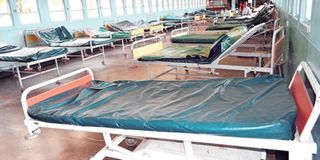Fix the crisis in Health

Empty beds at Ward Number 3 at the Coast General Hospital in Mombasa on September 1, 2014. PHOTO | KEVIN ODIT | NATION MEDIA GROUP
What you need to know:
- It is important that a comprehensive nationwide programme be put in place to resolve the complaints of discontented health workers.
- The scale of the problem indicates that the search for solutions cannot be left to the county administrations.
Public health facilities across the country have, in the past few months, been hit by a series of strikes, with doctors, nurses, paramedics and other health personnel downing tools over a myriad of grievances.
Some of the strikes have come out of issues limited to individual hospitals, while others are spread across the public health system within specific counties.
But services have been badly disrupted as a result of the work stoppages, affecting the majority of Kenyans who rely on the public health system.
It is, therefore, important that a comprehensive nationwide programme be put in place to resolve the complaints of discontented health workers.
Some of the issues leading to the wildcat strikes arise out of the uncertainties that came with devolution of health services and transfer of staff to institutions now run by county governments.
However, the scale of the problem indicates that the search for solutions cannot be left to the county administrations.
The national government, therefore, has the responsibility to come in and establish the mechanism by which all these issues can be looked into.





